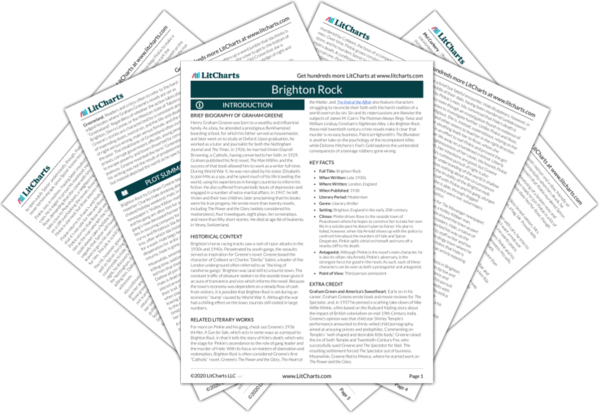Charles Hale is in Brighton on assignment from the Messenger, a newspaper. He is distributing
Kolley Kibber cards around the seaside town, trying his best to be spotted by a loyal
Messenger reader who, once he or she successfully identifies Hale and recites the pre-ordained speech, will win the newspaper’s grand prize. Those who find cards will be rewarded with 10 schillings each. Hale has a strict itinerary to follow but manages anyway to squeeze in several gin and tonics while he works. Convinced he will be murdered soon, he aloofly observes a seemingly never-ending parade of tourists, gathered in Brighton to celebrate the Whitsun holiday, or Pentecost.
